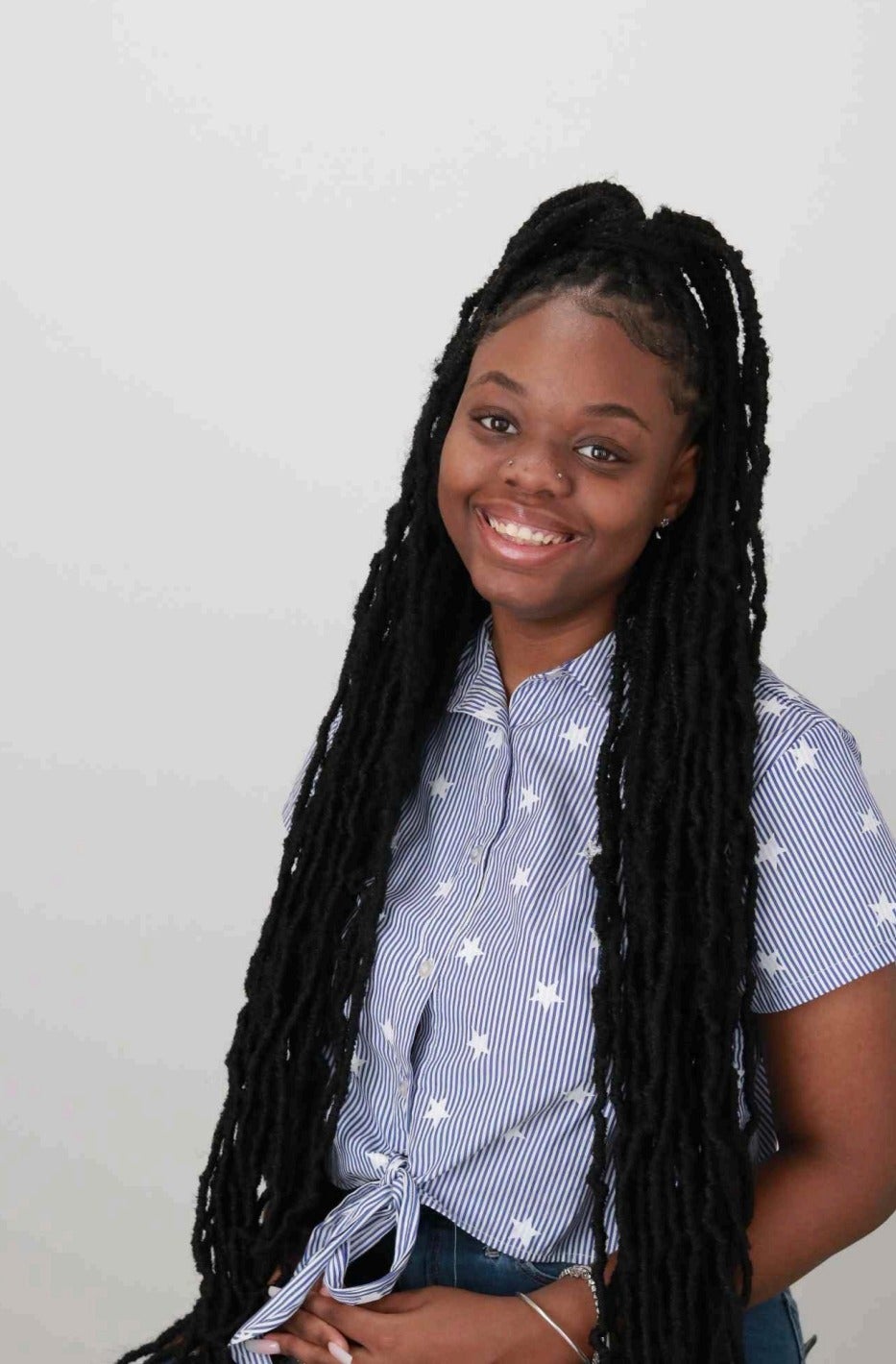 Nevaeh Hicks, She/Her
Nevaeh Hicks, She/Her
Junior, Martel
Resilient, Driven, Empathetic
Major: Political Science and Sociology
Minor: African and African American Studies
Why did you want to become a FLI Ambassador? I wanted to become a FLI Ambassador because I deeply understand the unique challenges that first-generation and low-income students face. My journey has taught me the importance of support and community, and I am passionate about helping others navigate similar experiences. As a FLI Ambassador, I want to advocate for resources, provide guidance, and create a space where students feel seen, heard, and empowered to succeed.
What does FGLI mean to you? Being FGLI means being part of a community that understands the unique obstacles of navigating higher education without the same resources and support systems as others. It’s about resilience, perseverance, and the drive to succeed despite these challenges. To me, it also means carrying the responsibility and privilege of paving the way for those who will come after us.
What is one challenge that you've experienced as a FGLI student and how did you overcome it? One challenge I’ve faced as a FGLI student is navigating the college environment where others may not share the same experiences and often don’t recognize their inherent biases due to their privilege. This becomes particularly challenging during conversations about global issues, where different perspectives can sometimes feel invalidated or misunderstood. To work through this, I’ve learned to assert my voice and perspective while also fostering open dialogues that encourage others to consider viewpoints beyond their own experiences. I actively engage in discussions, both in and out of the classroom, that highlight the importance of diverse perspectives and challenge assumptions.
What are you involved in outside of being a FLI Ambassador? Outside of being a FLI Ambassador, I serve as an Ombud on the Honor Council, where I help uphold academic integrity and ensure fair processes. I’m also a consultant at the Center for Academic and Professional Communications (CAPC), where I assist students in developing their writing and communication skills. These roles allow me to contribute to the campus community by supporting my peers both academically and ethically, while also honing my own skills in communication and leadership.
What's been your favorite class so far? My favorite class so far has been "Muslims in American Society" with Dr. Considine in the Sociology department. This course not only opened my eyes to the rich diversity and complexity of Muslim communities in the U.S., but it also fostered my love of research. It deepened my understanding of the importance of interdisciplinary studies and the intersections of identities, which are crucial in analyzing social issues. The class challenged me to think critically about how different aspects of identity—such as religion, race, and culture—interact and shape the experiences of individuals and communities.
A piece of advice for FGLI students: Remember that your unique perspective is a strength. Don’t shy away from sharing your experiences and viewpoints, even when they differ from those around you. Your voice adds valuable diversity to the conversation, and by staying true to yourself, you can inspire others to broaden their understanding.
